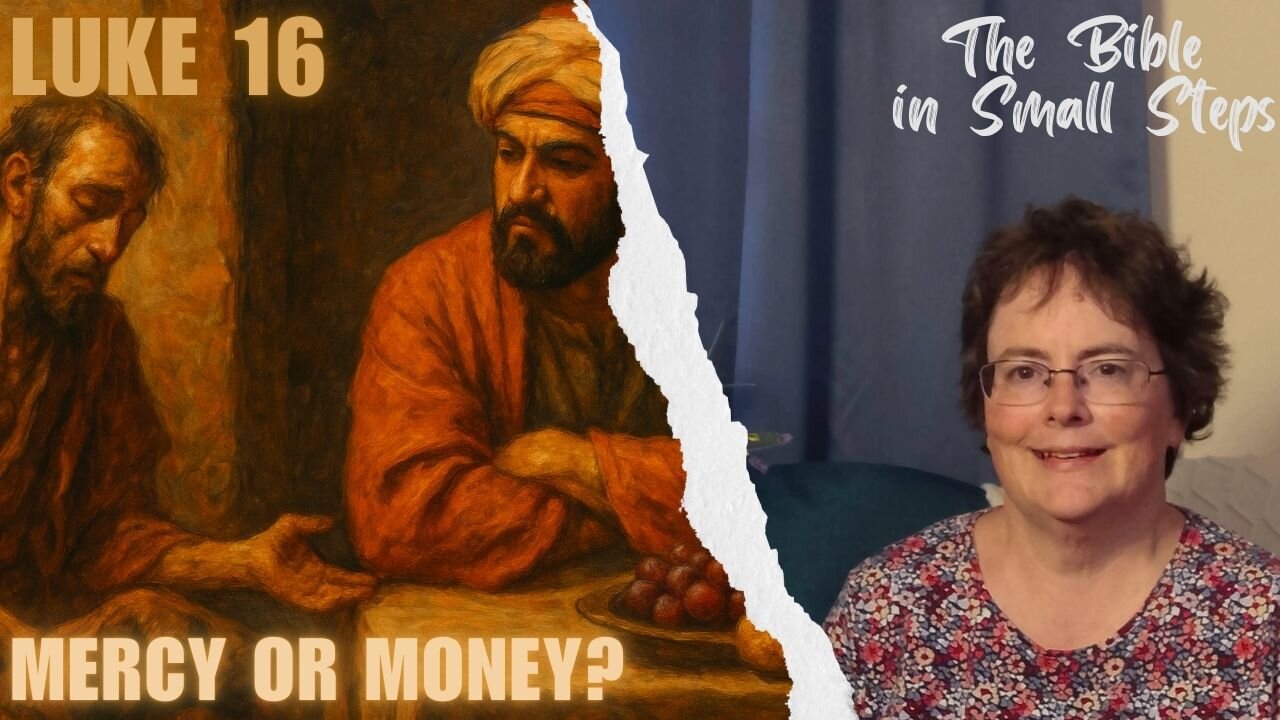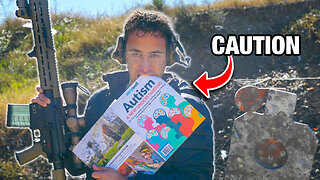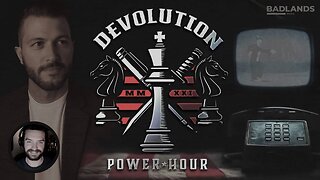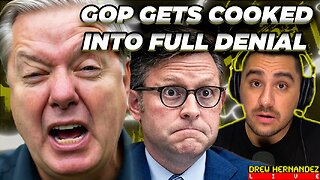Premium Only Content

Luke 16 - Mercy or Money
The Parable of the Shrewd Manager:
One of Jesus’ most perplexing parables. The manager isn’t necessarily dishonest—he’s shrewd. The point? Use worldly resources wisely to create eternal outcomes.
What Is “Unrighteous Wealth”?
Mammon comes from the root for trust. It’s not just money—it’s what people rely on. Jesus calls us to use even these unreliable things for God’s glory.
Are We Shrewd or Passive?
Jesus commends strategic thinking. Too often, people of faith are meek in planning. This parable pushes us to be thoughtful and intentional about the kingdom.
Serving God vs. Serving Money:
We can’t serve both. The tension between financial security and spiritual trust is real—and Jesus calls out misplaced trust in earthly wealth.
The Rich Man and Lazarus:
A stark picture of eternity. The rich man ignores suffering, and later faces permanent separation. Meanwhile, Lazarus receives eternal comfort.
Recognition in Heaven:
Abraham and Lazarus are identified by name—hinting that we retain our identities and relationships in eternity. Heaven isn’t abstract; it’s deeply personal.
Scripture Is Enough:
The rich man pleads for a miracle to warn his brothers, but Abraham says they already have the law and prophets. Faith grows from God’s word—not from dramatic signs.
God's Values vs. Human Status:
What the world admires—status, wealth, appearances—God often rejects. He cares about the heart, not the surface.
Faithful Stewardship:
The chapter challenges us to ask: What are we doing with what we’ve been given—our money, time, relationships, and influence?
Takeaway
Luke 16 challenges us to think wisely and intentionally about how we use what we've been given. Jesus doesn’t praise dishonesty—He praises shrewdness, the kind of thoughtful, strategic action that leads to eternal outcomes. We’re reminded that wealth, while not inherently wrong, can become a substitute for trusting God if we’re not careful. The call is to use our time, money, and relationships in ways that bring others closer to God, investing in eternal returns rather than earthly comfort. Faithfulness with little leads to faithfulness with much, and burying our talents out of fear or inaction misses the point of the gospel. We’re shown that heaven is personal and relational—we will know each other—and that God’s priorities often reverse what the world admires. Scripture is enough to guide us, and now is the time to act.
https://thebibleinsmallsteps.com/luke-16-stewardship-and-shrewdness/
-
 2:13:33
2:13:33
Side Scrollers Podcast
16 hours agoAsmongold SUED for Emotional Distress + Hasan REJECTED+ INSANE Plane Crash + More | Side Scrollers
76.4K22 -
 21:39
21:39
Nikko Ortiz
4 days agoI Take A North Korean Shooting
62K9 -
 23:01
23:01
GritsGG
14 hours agoWarzone Solo Dubular! Last Night Time Solo???
1.7K -
 22:47
22:47
The Pascal Show
12 hours agoTHEY’RE HIDING EVIDENCE?! Candace Owens EXPOSES Foreign Connection In Charlie Kirk Shooting
2.52K6 -
 LIVE
LIVE
Lofi Girl
3 years agolofi hip hop radio 📚 - beats to relax/study to
140 watching -

FreshandFit
12 hours agoLas Vegas Takeover!
181K13 -
 2:19:29
2:19:29
Badlands Media
12 hours agoDevolution Power Hour Ep. 404
66.8K35 -
 6:02:58
6:02:58
Drew Hernandez
1 day agoGOP COOKED INTO DENIAL & 12 ISRAELI-LINKED PHONES DETECTED AT UVU DAY OF CK EXECUTION?
46.1K23 -
 2:46:08
2:46:08
TimcastIRL
8 hours agoFAA To STOP Flights Over Shutdown, May CLOSE Airspace, Thanksgiving Travel APOCALYPSE | Timcast IRL
193K109 -
 1:56:20
1:56:20
Tucker Carlson
8 hours agoIt’s Time to Decide: America First or Lindsey Graham’s Psychosexual Death Cult?
108K396